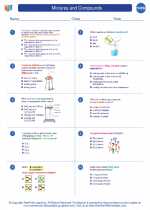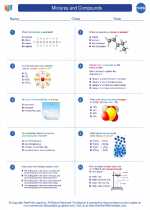Understanding the Fossil Record
The fossil record is a critical aspect of paleontology and evolutionary biology, providing evidence of the history of life on Earth. It consists of the preserved remains or impressions of organisms from past geological ages. The study of the fossil record allows scientists to understand the diversity of life, as well as the processes of evolution and extinction over millions of years.
Key Concepts
- Processes of fossilization
- Types of fossils (e.g., body fossils, trace fossils)
- Stratigraphy and the geological timescale
- Dating methods (e.g., radiometric dating, relative dating)
- Patterns of evolution and extinction in the fossil record
Importance of the Fossil Record
The fossil record provides valuable insights into evolutionary history, extinction events, biogeography, and environmental changes. It allows scientists to trace the changes in species over time, understand catastrophic events, and study past environmental conditions.
Study Tips
- Understand Fossilization: Learn the processes involved in the formation of fossils, including mineralization and sedimentation.
- Geological Timescale: Familiarize yourself with the major geological periods and the key events and organisms associated with each period.
- Dating Methods: Understand the principles behind radiometric dating and how it is used to determine the age of fossils and rock layers.
- Evolutionary Patterns: Study the ways in which the fossil record provides evidence for evolutionary change, including transitional forms and adaptive radiations.
- Practice with Fossil Examples: Examine specific fossil specimens and their significance in understanding the history of life on Earth.
Resources for Further Study
- Paleontology textbooks and academic journals
- Online databases of fossil collections and geological data
- Museums and exhibits featuring fossil displays
[Fossil Record] Related Worksheets and Study Guides:
.◂Chemistry Worksheets and Study Guides High School. Mixtures and Compounds
Worksheet/Answer key Mixtures and Compounds
Mixtures and Compounds  Worksheet/Answer key
Worksheet/Answer key Mixtures and Compounds
Mixtures and Compounds  Worksheet/Answer key
Worksheet/Answer key Mixtures and Compounds
Mixtures and Compounds 

 Worksheet/Answer key
Worksheet/Answer key
 Worksheet/Answer key
Worksheet/Answer key

The resources above cover the following skills:
Chemistry II
Properties of Matter
Develop and use models to explain the differences between chemical compounds using patterns as a method for identification.
Use mathematical representations to quantify matter through the analysis of patterns in chemical compounds.